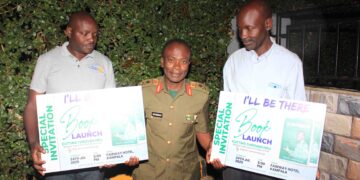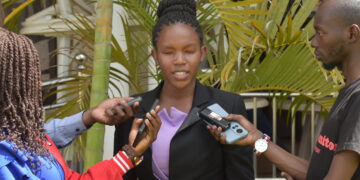The U.S. President’s Emergency Plan for AIDS Relief (PEPFAR) and biopharmaceutical giant Gilead Sciences have announced plans to introduce injectable lenacapavir (LEN) in countries most affected by HIV/AIDS, with a strong focus on preventing mother-to-child transmission.
The decision comes after months of uncertainty that had slowed progress in HIV prevention efforts. Advocates say it signals a fresh start.
“Prevention programs were gutted, and this is an important signal that PEPFAR and the U.S. government are re-engaging in PrEP delivery,” said Mitchell Warren, Executive Director of the AIDS Vaccine Advocacy Coalition (AVAC). “It’s a step forward from where we’ve been in a fairly paralytic state.”
While the Global Fund had already set a goal to reach two million people with lenacapavir in its first three years, AVAC says PEPFAR’s return to the table is crucial for scaling up access.
Uganda, which has long benefited from PEPFAR’s support, is expected to be among the beneficiaries. The country recorded major progress in reducing mother-to-child HIV transmission under earlier U.S.-funded initiatives, and experts believe the new drug could push those gains further.
Lenacapavir, administered twice a year by injection, has shown remarkable results in clinical trials. More than 99% of participants remained HIV negative, making it one of the most promising prevention tools to date.
Researchers say it could be especially valuable for expectant and breastfeeding mothers, who remain at risk of passing the virus to their children.
Daniel O’Day, Gilead’s Chairman and CEO, hailed the drug as a “scientific breakthrough” nearly two decades in the making.
He emphasized that Gilead would provide lenacapavir at no profit under its partnership with PEPFAR, saying, “We aim to support the U.S. government in delivering life-saving programs where the need is greatest.”
Despite the optimism, concerns remain about affordability and access. Gilead’s U.S. list price is $28,000 per person per year.
By contrast, independent research in The Lancet HIV estimated that generic versions could cost as little as $35–$46 annually—and potentially $25 if millions of people are covered.
UNAIDS Executive Director Winnie Byanyima and other global health advocates have urged both Gilead and the U.S. government to bring costs down to ensure wider availability.
Since its launch in 2003, PEPFAR has invested more than $120 billion in the fight against HIV/AIDS, making it the largest commitment by any nation to tackle a single disease.
Supporters hope that with lenacapavir, PEPFAR can once again lead the way in prevention and help close the gap toward ending the epidemic.































